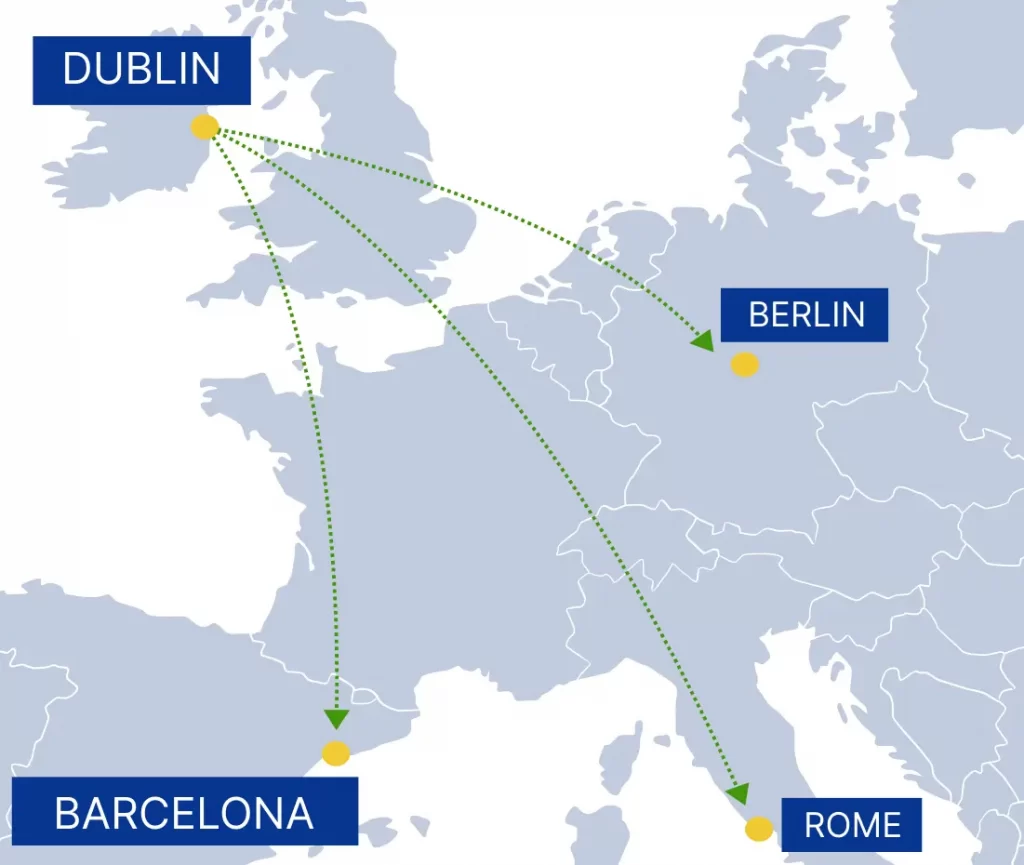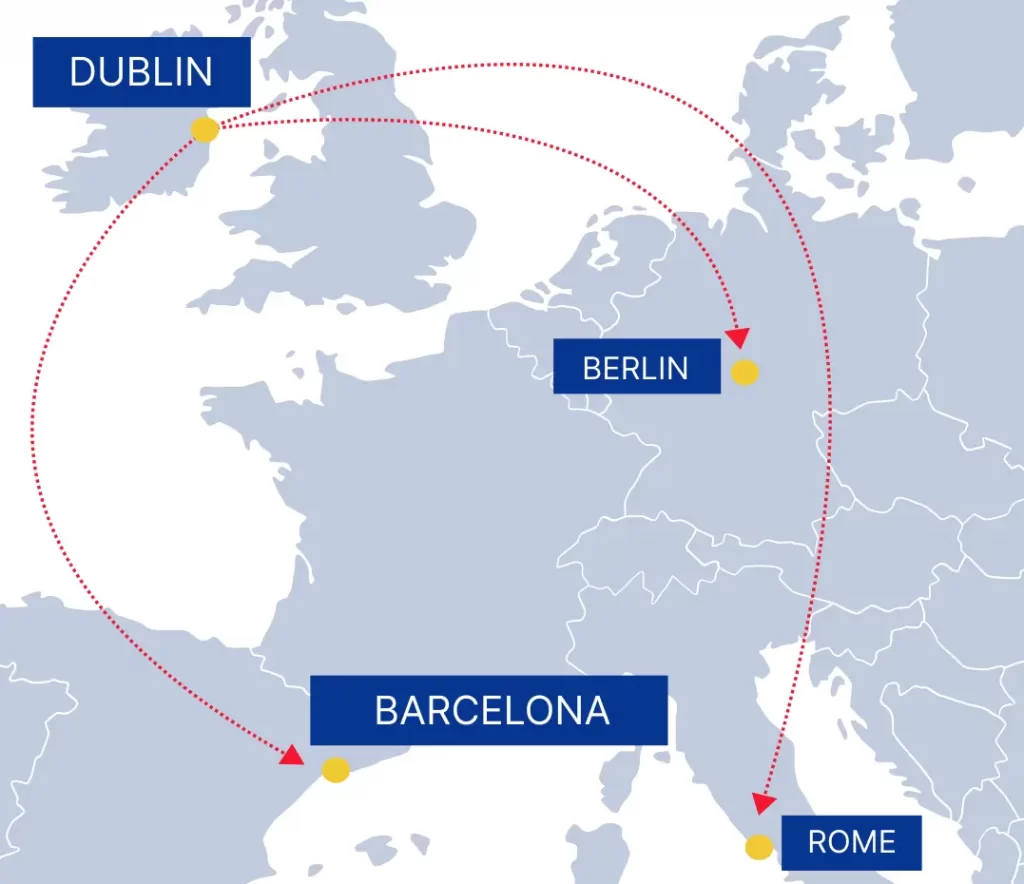Government Policy and Reform
Government Policy and Reform
Ryanair policy positions are aligned with progressing towards our ambitious environmental targets and reducing aviation’s environmental impact. Until these policies are realised, aviation will continue to be recognised as a highly polluting industry, contributing to global greenhouse gas emissions and other environmental impacts.
Scale Up Of SAF*
Ryanair is actively working with the European Commission, national Governments, the Fuelling Flight Project and fuel suppliers to encourage government support of investment in SAF and to incentivise its use.
We support, and have signed up to, the Fuelling Flight Project and want to see the introduction of policies which promote sustainable fuels and therefore reduce aviation’s climate impact, helping us to reach our net-zero carbon emissions target by 2050. The Group welcomes the SAF blending mandates as outlined in the EU Fit for 55 proposal, and has encouraged decision makers to ensure that only truly sustainable SAFs will be distributed in the EU.
Air Traffic Management Reform
Ryanair has been a long-time advocate of the “Single European Sky” project. The much needed and overdue reform of ATM in Europe can dramatically reduce CO2 and non-CO2 emissions from aviation. A more efficient ATM network would result in a 10% reduction in carbon emissions and bring us closer to our goal of net-zero carbon emissions by 2050.
In FY23, Ryanair launched a petition seeking support from EU citizens for EU legislation aimed at protecting 100% of ‘overflights’ during times of national ATC strikes, modelled on national laws protecting overflights in Spain, Italy and Greece. An overflight is a flight over a particular airspace, which does not take off from or land at any airport within that airspace.
By enabling overflights during strike action, additional emissions could be eliminated where currently aircraft are forced to fly longer to avoid the closed airspace. Well over 1m people had signed and supported our “PROTECT PASSENGERS – KEEP EU SKIES OPEN” petition when we presented the petition to the European Commission in May 2023. We called for legislation based on the following principles:
- Respect the strike rights of ATC unions, but
- Protect 100% of overflights during national ATC strikes
- If ATC strikes require cancellations, then allocate these to domestic/short-haul flights to/from the affected State
- Enforce binding arbitration for ATC disputes before strike action
- Require a 21-day notice of strike action
- Require a 72 hour notice of employee participation in ATC strikes to minimise passenger disruption

Better Air Traffic Management -10% CO2

Current Air Traffic Management +10% CO2
ETS Reform
Ryanair is active in highlighting the climate-negative impacts of the European Commission’s proposal to continue the unjustified exemption of long-haul flights from EU Emissions Trading System (ETS) beyond 2026. Continuing with the limited scope of the ETS (i.e., covering intra-EU flights only) means that over 50% of European aviation emissions – generated by just 6% of flights (long-haul) – are not accounted or paid for under the scheme. Together with the environment NGO Transport & Environment, Ryanair continues to promote the extension of the EU ETS to all flights departing from an EEA airport.
*Sustainable Aviation Fuel (SAF) is an alternative to conventional aviation fuels, potentially reducing the industry’s reliance on fossil fuels. While SAF emits similar CO₂ levels during combustion, its lifecycle CO₂ impact is significantly lower – at least 65% less than fossil-based kerosene – thanks to its production from non-fossil resources like used cooking oil. Nonetheless, the CO2 emissions caused during the flight remain almost the same. As per ReFuelEU Aviation Regulation, we ensure that the SAF we select meets strict sustainability standards.
Despite its limited availability and impact when compared to the entire sector’s footprint, SAF usage is a positive step forward. The EU mandates fuel providers to mix on average 2% of SAF for flights departing from the EU.
